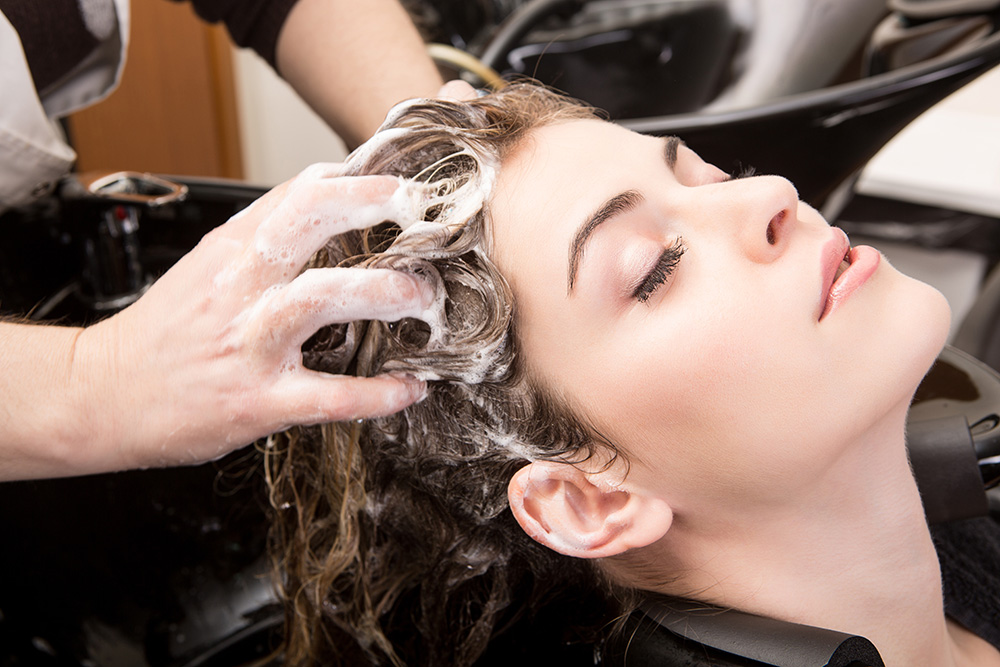Shopped for a hair product recently? If you did, there’s a good chance that you’ve noticed how many bottles of shampoos now have the words ‘sulfate-free’ in large fonts. This isn’t a common sight years ago, so you might be a bit curious about what this means and why should you opt for such products.
What does Sulfate-Free Mean?
What exactly is a sulfate free shampoo? These products are labeled as such as they don’t include sulfates in their ingredients lists. Sulfates are often found in most shampoos – from Klorane to Head and Shoulders – as they’re the primary ingredient that creates those suds that give you the visual assurance that your shampoo is doing its job.
Aside from creating a lather, they’re also surfactants that lift the oil, grime, product buildup, and dirt on your skin or hair. They make it easier to wash these things off by water, leaving you clean and free of any pollutants.
Why Should You Avoid Sulfates in Your Hair Products?
In all honesty, sulfates can come in very handy. It’s very useful as it makes cleaning your skin more efficient. However, it’s still a synthetic ingredient and lots of people are already starting to get wary of using so many chemicals on their hygiene products.
Sulfates are also known to strip away the natural oils from your scalp and hair resulting in dryer scalp and more brittle hair. While sulfates may make you feel like your shampoo is doing a thorough job in helping you clean yourself, it can also damage your skin and hair. For lots of people, this trade-off is not worth it, especially when there are better alternatives.
Who Should Use Sulfate-Free Products?
If you already have a dry scalp, to begin with, products with sulfate can only aggravate the situation. Those with dandruff issues and eczema should also avoid this ingredient if they want to see an improvement in their scalp. If you have dry, brittle hair or thin locks, you should also avoid sulfates.
Those who have naturally curly hair that are prone to frizziness can benefit from sulfate-free products, however. As these options are not as drying as their sudsy counterparts, they won’t further cause frizzing.
Sulfate-free shampoos are also ideal for those with dyed locks. They won’t dry out your hair and they can even prolong the vibrancy of your hair color as they won’t strip your locks of the coloring agents added to it.
How Sulfate-Free Products Work
If sulfate is an effective surfactant that lifts and removes the dirt, oil, and grime on your hair and scalp, how would a sulfate-free product help clean your hair, you might be wondering? If you’ll remove sulfate from the formula, wouldn’t you be left with product, grime, and oil buildup?
The most important thing that most people need to know about these products is that they swap out sulfate for other surfactants. There are tons of other natural surfactants out there like the glyceryl cocoate, cocamidopropyl betaine, and decyl glucoside which are made from coconut oil. Some products also use glutamates, taurates, gulcosides, morikue protein, seaweed, quinoa protein, and lots of other natural ingredients to clean your hair and scalp.
How to Use Sulfate-Free Shampoos
As sulfates create suds, it should be expected that sulfate-free shampoos don’t lather as much as their chemical-packed counterparts. This tends to put lots of people off as they need the suds to feel that they’re getting a good job cleaning their bodies. So even though sulfate-free shampoos can also clean your hair thoroughly, some people doubt it because they don’t get a lot of suds.
If you’re fine without a generous lather, you might still want to make sure that you’re getting cleaned by these products. How do you do that, though?
According to some experts, the key to getting the results you want from sulfate-free shampoos is to use more water than the actual product. Traditional shampoos will need you to use more product to create a bigger lather, but this isn’t the case for your sulfate-free options. You need to make sure that your hair is very wet for these products to clean your hair.
It’s a rather simple and straightforward step. Unfortunately, not everyone knows it so they end up getting frustrated with these options. Doing this will even help your bottle of shampoo last a long while so it can even become a practical approach to your hair care.
Final Verdict
So should you use a sulfate-free shampoo or not? If you don’t want to use more synthetic ingredients on your body, these are excellent options. If you also have the conditions mentioned above, these hair care products can also be better picks for you.
However, some experts believe that sulfates aren’t entirely bad for you. They’re still very efficient and are even available in milder formulations. So if you don’t really need a sulfate-free option, don’t feel bad about using a traditional shampoo. Just pick one with a milder sulfate variety and you can still get healthy locks despite the use of synthetic ingredients.
